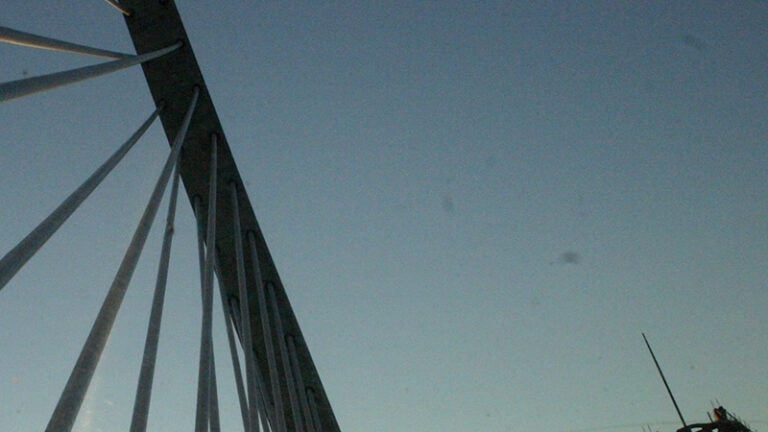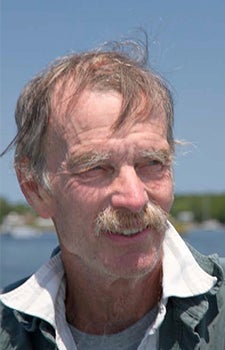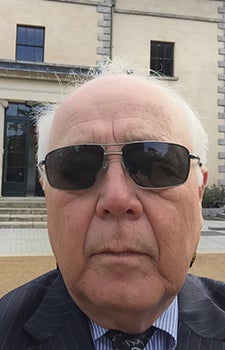
New publishing platform makes experienced authors’ works freely available
There’s no money in it.
It will not be career-enhancing.
These are the two guiding principles of Free Read Press, an online publishing resource launched last spring by USC Dornsife’s Joseph Dane and John Carlos Rowe as an alternative to academic and open-access presses.
“[Rowe] and I had been talking for years about the problems we had with the commercial model and the delays involved,” said Dane, professor of English. “We thought, ‘Why not just make our own?’”
Readers who visit the Free Read Press website can download and distribute books by experienced authors, many of whom are connected with USC, at no cost and with no usage restrictions. In addition to work by Dane and Rowe, who is professor of English, American studies and ethnicity, and comparative literature, contributors include Distinguished Professor of English Percival Everett, Aerol Arnold Professor Emeritus of English Jim Kincaid, and Richard Fliegel, associate dean for undergraduate programs.
Unlike traditional printing houses, there is little editing, and authors can make changes to their work at any time. For readers who prefer the texture of a crisp page over the digital swipe, Free Read Press has partnered with printers to sell physical copies of each book at cost.
The publishing problem
Dane believes the problems with traditional publishing models are mostly tied to the bottom line. Work must be deemed commercially viable, so only a fraction of submissions make it through the pipeline.

Joseph Dane. Photo courtesy of Joseph Dane.
“Norton very kindly sends me a notice every six months reminding me I still haven’t sold enough copies of my book to cover my advance,” he said.
Publication must instead be subsidized by a third party — often university libraries.
Professors Dane and Rowe were enthusiastic when open-access presses gained prestige. But they quickly found many of the same problems that manifest in traditional venues. Both traditional and open-access presses require income to operate, and if this does not come from the sale of physical books, it must come in the form of grants or subsidies from individual authors or their home institutions.
To those outside the academy, the practice might seem unnecessary all together. Why would a scholar seek to publish on an esoteric subject for a small audience?
The long-held expectation for faculty moving up the tenure ranks is that their scholarship is accepted and published by well-established academic presses. In many instances, this is the primary consideration of the peer-review process that American universities employ to promote faculty.
Erin Graff Zivin, professor of Spanish and Portuguese and comparative literature, believes this model limits a young scholar’s ability to take risks in their writing. She should know, given her impressive record of publishing. Graff Zivin believes that alternative models should be explored, especially at a university like USC where public humanities are becoming a higher priority.

John Carlos Rowe. Photo courtesy of John Carlos Rowe.
“I don’t know that change can come from publishers. It will have to come from institutions,” she said. “If we’re bringing humanities to the public, why not experiment with new forms so that more people can read our work?”
Turning the page
Three years ago, Rowe, who holds the USC Associates Chair in Humanities, had just finished his book, Autobiography of Carlos: LA Memory. Given its unconventional structure, he decided to bypass traditional presses, sending it out instead via e-mail to readers he knew. At the same time, Dane was imagining ways to work where he could get a sense of completion that was divorced from the whim of a publisher’s editor.
Both had long earned tenure, and neither needed to add to extensive resumes. With no clear options available to them, they launched Free Read Press last spring.
“We’re lucky we are in a position to do this,” Dane emphasized. “I think my junior colleagues, or even tenured professors in creative writing, couldn’t do this because everything they write is something they want to put on their CV.”
Rowe echoed, “The beauty of this method of sharing work is that it doesn’t matter too much if people like or dislike what we’re doing. … What a relief!”
Graff Zivin is very enthusiastic about the possibilities the project opens.
“If senior scholars begin to experiment with this form, that could have a trickle-down effect in different disciplines, where you would begin to see other creative approaches.”
Asked whether he sees Free Read Press as a new model for publishing going forward, Dane returned to issues with the peer-review process and its expectations.
“I don’t think humanities publishing can count on libraries to continue investing hundreds of thousands of dollars every year to have the latest monograph,” he said. “What John and I are doing isn’t going to solve that problem, but I think there are going to be a lot of responses like ours to the situation.”